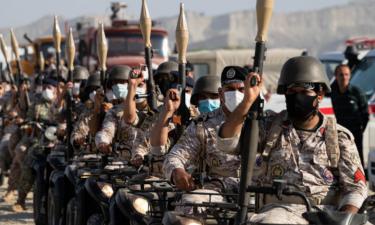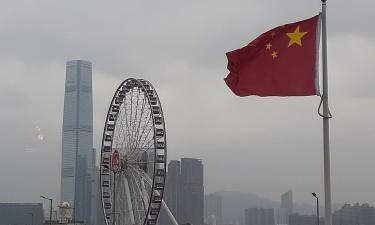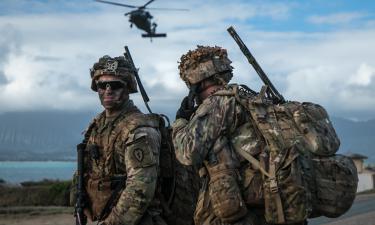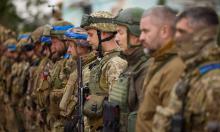Pro-Putin party wins regional elections in Russia
The party that forms President Vladimir Putin's power base was leading most races in regional elections, but was outdistanced in one region by a new party that both supports Putin and promotes itself as the opposition, according to unofficial preliminary results Monday.
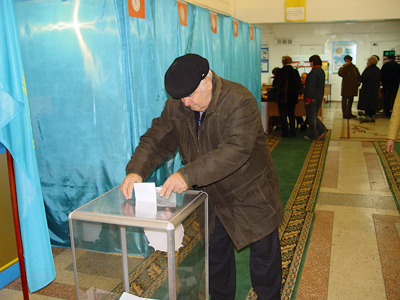
The elections Sunday in 14 of Russia's 86 regions have no direct effect on national affairs, but were seen as a sketch of the country's political landscape as Russia heads for national parliament elections in December and next year's vote for Putin's successor.
The elections were held under new rules that critics say continue a retreat from democracy and restrict the ability of voters to voice discontent. They also provided a test for Just Russia, a new party formed as a nominal opposition, though it supports Putin.
Many observers consider Just Russia as a tool to channel protest votes away from ardent opponents and broaden the Kremlin's support base.
News reports said Just Russia got the largest share of votes in the Stavropol region, about 37 percent, with 24 percent for United Russia, the pro-Putin party that dominates national politics. Putin is not a member of United Russia, but the party's members in the parliament are seen as doing his bidding with little question.
Although Putin himself retains wide popularity, United Russia's politicians are often regarded as greedy; Just Russia appears to aim at presenting voters a pro-Putin but less-tainted alternative.
Party leader Sergei Mironov lauded Just Russia as "having returned real competition to politics," the ITAR-Tass news agency reported Monday.
Official preliminary results were not expected until later Monday, but exit polls and incomplete local results showed United Russia appearing to retain approximately the level of support it had in the old regional assemblies.
In some of those regions United Russia apparently will retain the numerical majority of seats; in others, such as St. Petersburg and the surrounding Leningrad region, United Russia had not held a majority and its proportion appeared little changed.
While 14 parties and their candidates competed in the elections, critics said the appearance of genuine pluralism was only superficial.
Voters in St. Petersburg expressed dismay that some parties had been barred from the ballot - notably Yabloko, a liberal party that was excluded by a ruling that more than 10 percent of the signatures it gathered to enter the race were invalid.
Sunday's vote signaled the start of a year of elections that will culminate with a March 2008 presidential vote. Putin is constitutionally barred from running because he has served two terms. Critics say the Kremlin - nervously eyeing his departure - wants to choreograph the elections to ensure a smooth succession and enable the popular president to maintain influence after he steps down.
"Russia today technically is a police state and this corrupt and unethical Putin regime is trying to survive at any cost," former world chess champion Garry Kasparov, who leads the Other Russia opposition movement, told The Associated Press on Sunday. "They know that with free and fair elections and no censorship they will not last long."
Putin has hinted he will choose a favored successor and he evidently wants to leave little to chance. Critics say legislation initiated by Putin or United Russia aims to discourage pluralism and silence dissent, the AP says.
Voters could no longer cast ballots "against all," and in most regions there was no longer a minimum turnout required to make the election valid. In a few regions, all voting was by party, meaning no ballots could be cast for individual candidates, and the threshold parties had to clear to gain seats was increased to 7 percent.
By limiting the outlets for opposition sentiment, the Kremlin has pushed some opponents into the streets. Last weekend, police in St. Petersburg violently dispersed one of the largest opposition demonstrations in Russia in years; among protesters' main complaints was that opposition parties were blocked from the ballot.
Subscribe to Pravda.Ru Telegram channel, Facebook, RSS!
